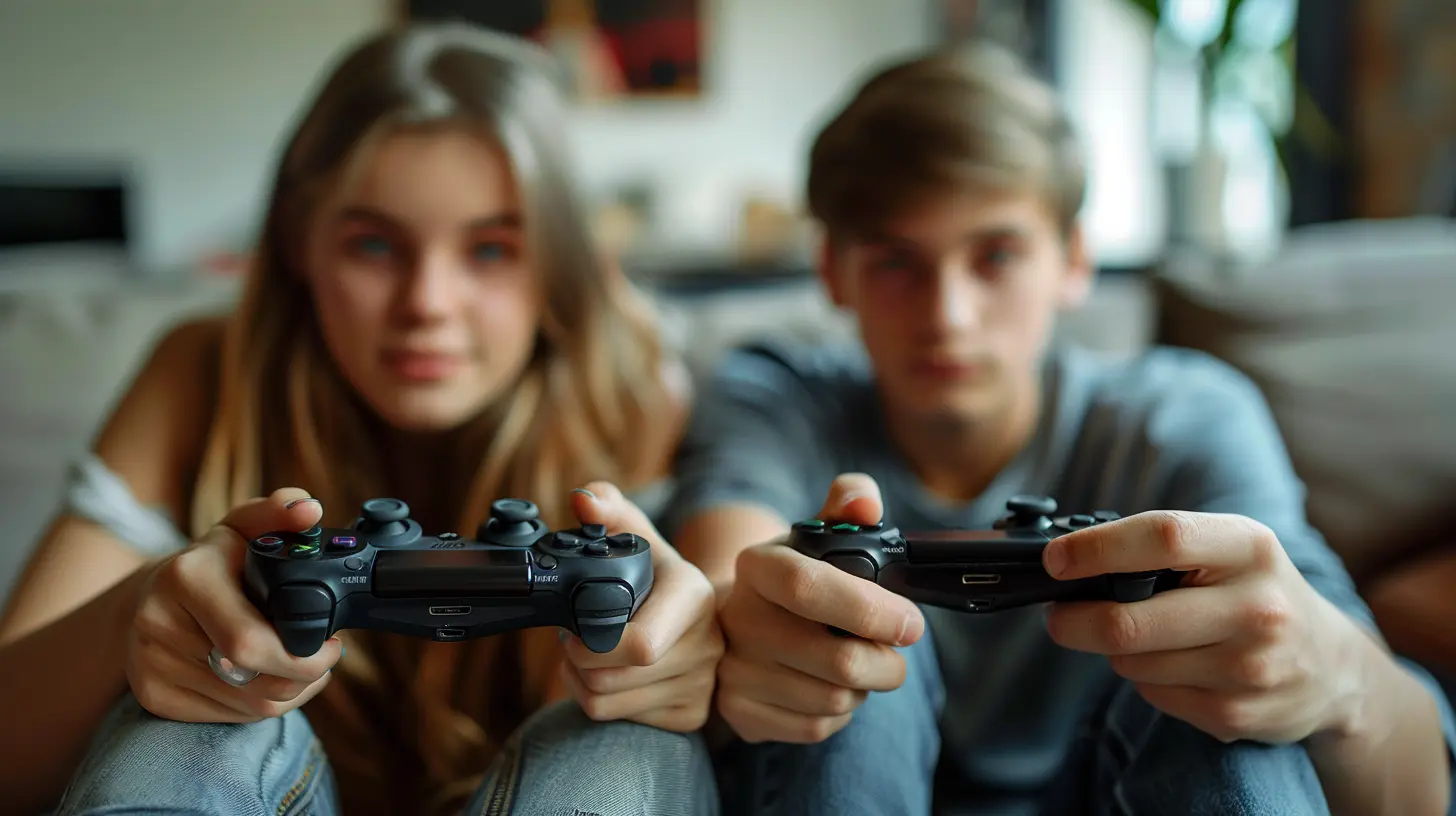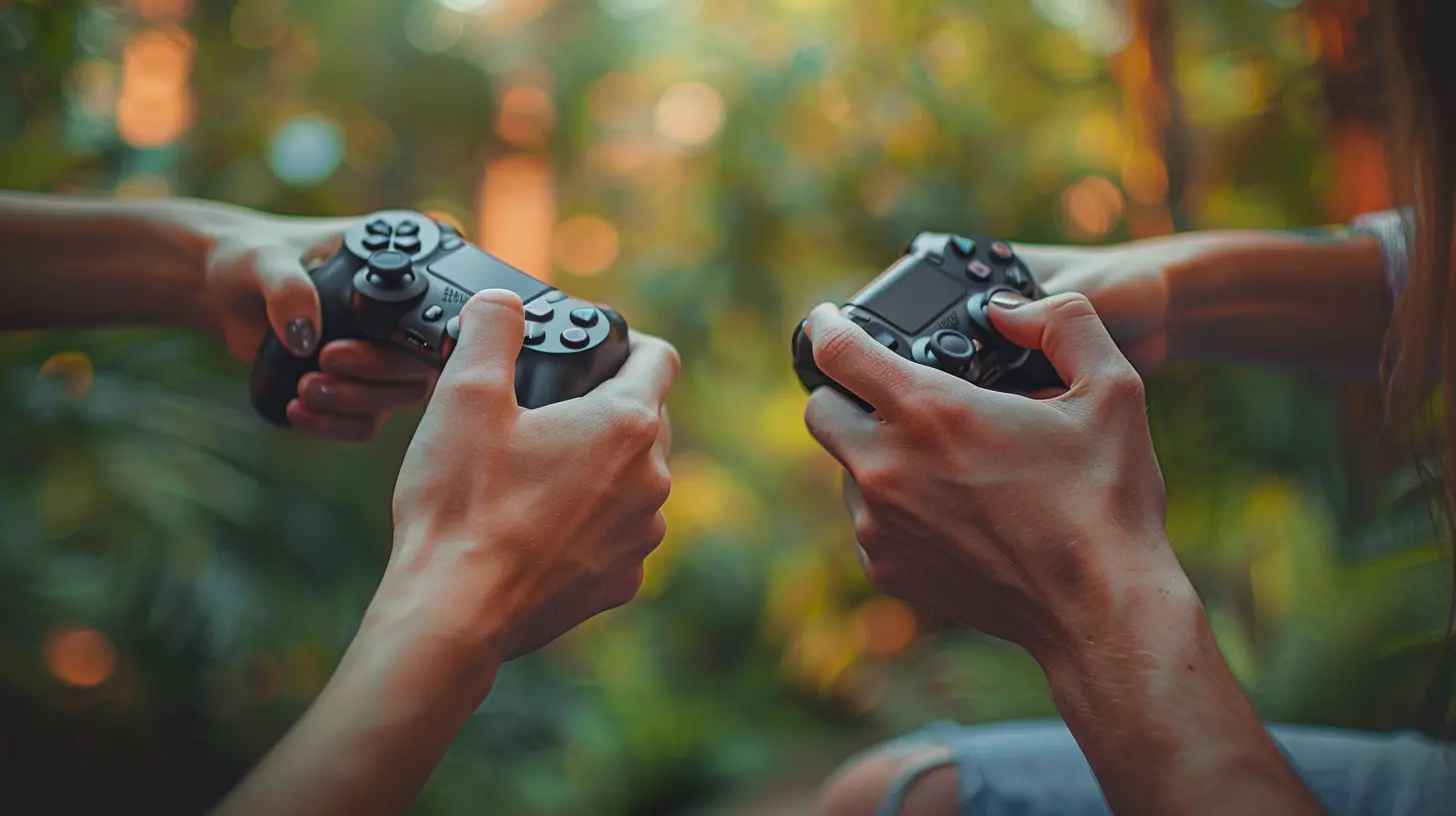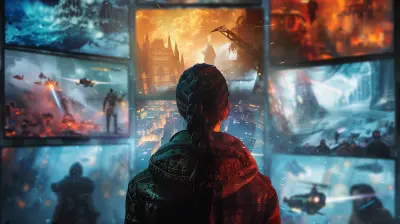The Role of Social Games in Modern Day Friendships and Dating
8 November 2025
Have you ever found yourself bonding with someone over a video game? Or maybe you found love while farming digital crops? Social games have completely transformed the landscape of relationships today, from casual friendships to full-blown romantic partnerships. I know it sounds a little too "Black Mirror-esque," but hear me out! These games have blurred the lines between online and offline relationships, making them a powerhouse for connecting people in ways we'd never imagined before.
Whether you're into cooperative battles, virtual reality dance-offs, or peaceful farming simulators, one thing is undeniable: social games are becoming central to how we build and maintain connections. So, let’s dive right in and explore how these virtual worlds are reshaping human relationships.
What Are Social Games?
First things first, what exactly are social games? Simply put, these are games designed to be played online with other people. Unlike your traditional solo games, social games focus on interaction, teamwork, and building connections between players. They’re available on all kinds of platforms — from console titles like Fortnite to mobile favorites like Among Us or Clash of Clans.Let’s not forget the games that live on social media platforms either (FarmVille, anyone?). Whether you’re playing with strangers or your IRL friends, social games allow you to communicate, collaborate, and, let’s face it, occasionally trash talk each other.
But here’s where things get interesting: these games aren’t just increasing your friend count. They're genuinely redefining how we approach friendships and even dating in real life. 
The Impact of Social Games on Friendships
Building Bridges Between Strangers
Ever played a game where you instantly bonded with your teammate who miraculously saved you during a tough match? That’s the magic of social games. They break down barriers and make it so much easier to connect with people you’d never meet otherwise.Playing games together fosters teamwork and collaboration, which leads to a shared sense of accomplishment. These experiences are the foundation of many virtual friendships. And let’s be real: some of these friendships turn out to be stronger and more meaningful than the ones we’ve got offline. Sounds crazy, right? But think about it — games create a safe space to be yourself without the societal pressures or awkward silences that come with face-to-face interactions.
Strengthening Existing Friendships
Social games also work wonders for friendships we already have. For instance, how often do you and your squad sit down for a movie? Now, contrast that with how often you hop on a gaming platform for a shared mission or quest. Social games give friends something to do together rather than just sit around watching Netflix.And let’s face it, games can be incredibly personal. When you’re plotting strategies or screaming together because a boss fight went horribly wrong, you're building memories, even if it’s all happening virtually. It’s that shared experience that strengthens the bond between you and your friends, almost like playing a high-stakes game of dodgeball when you were a kid. 
Social Games and Dating: A Digital Cupid?
A New Kind of Meet-Cute
Gone are the days when your only shot at meeting someone special was at a bar or through mutual friends. These days, you might just meet “the one” while battling zombies or building cities.Social games create a space where you can interact with others in a more relaxed environment. There’s no pressure to impress right away — you’re just two players on the same team. And over time, as you exchange banter, inside jokes, and late-night gaming sessions, real feelings can blossom.
Take multiplayer games like World of Warcraft or League of Legends. These aren’t just games; they’re communities. You’re spending hours together, solving problems, and ideally, supporting each other. Honestly, it’s kind of romantic, isn’t it?
Virtual Dating: The New Normal?
For couples who met through games, their shared hobby often becomes the foundation of their relationship. Many even go on virtual dates within their favorite games — think romantic strolls through a pixelated beach or taking selfies in front of a digital waterfall.What’s beautiful about gaming as a shared activity is that it’s not just about sitting around and talking. You’re actively doing something together, solving puzzles, or competing against others, which can help build a stronger connection. It's like playing co-op board games but on a much cooler, leveled-up scale! 
Why Are Social Games So Effective at Connecting People?
So, why do social games create such strong bonds? Honestly, it comes down to a few major factors:1. Shared Goals: Whether it’s taking down a raid boss or building the tallest tower, having mutual objectives fosters teamwork and trust.
2. Frequent Interaction: Social games often require consistent communication. This helps you naturally develop a rapport.
3. Low Stakes, High Fun: There’s no pressure to “act cool” when you’re both trying to survive a zombie apocalypse. Gaming lets your true personality shine.
4. Safe Environment: Especially for introverts or socially anxious folks, gaming is a non-intimidating way to meet and connect with people.
The Social Dilemma: The Downsides of Gaming Connections
Okay, not everything about social games is sunshine and rainbows. Let’s address the flip side for a second.For one, it’s easy to mistake a digital connection for a real-life friendship. While gaming bonds can be authentic, they sometimes exist in a vacuum and don’t always translate to the physical world. There’s also the risk of becoming overly reliant on digital interactions at the expense of in-person relationships.
Addictive gaming can also lead to unhealthy dynamics. Some people might struggle to build genuine connections because they’re losing themselves in the game world. Balance is key, my friends.
Tips to Make the Most Out of Social Games
1. Choose Games Wisely: Pick games that align with your interests and allow for meaningful interaction.2. Communicate: Don’t just play silently; talk to your teammates, even if it’s just casual banter.
3. Mix It Up: Don’t let gaming replace all other forms of socializing. Combine it with real-life hangouts or dates.
4. Set Boundaries: Ensure that gaming doesn’t consume your entire social life or relationship.
Wrapping It Up
Social games are more than just digital pastimes; they’re social ecosystems reshaping how we connect with others. Whether it’s forming lifelong friendships or meeting your soulmate, these games act as virtual campfires where people gather, share stories, and build connections.Who’d have thought that shooting aliens or maintaining a virtual farm could lead to real, meaningful relationships? So, the next time you fire up your favorite social game, remember this: you’re not just playing for entertainment. You’re potentially building bonds that could last a lifetime.
all images in this post were generated using AI tools
Category:
Social GamesAuthor:

Emery Larsen
Discussion
rate this article
1 comments
Enid McCracken
This article beautifully captures how social games foster connections and strengthen friendships. They create lasting bonds in a fun, engaging way—truly transformative for relationships!
November 10, 2025 at 3:32 AM

Emery Larsen
Thank you! I'm glad you found the article insightful. Social games indeed play a vital role in enhancing connections and relationships.


